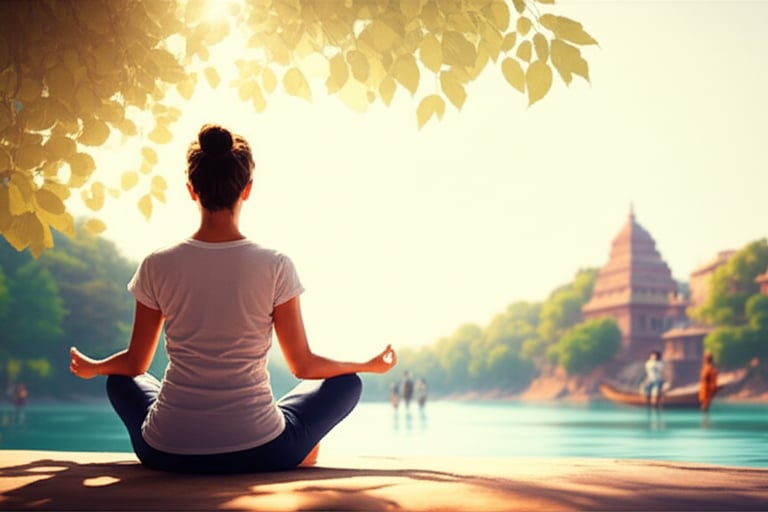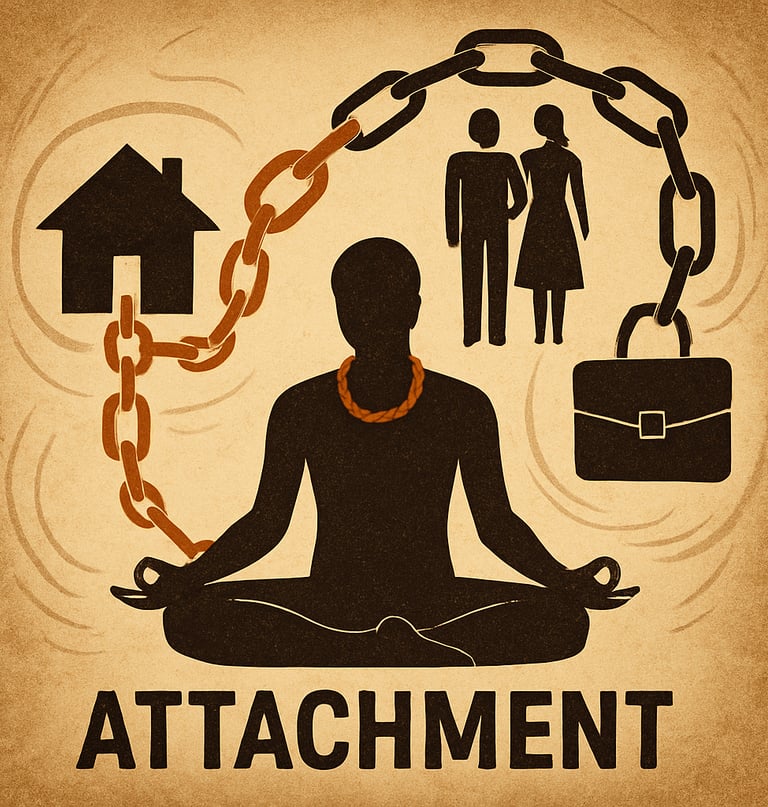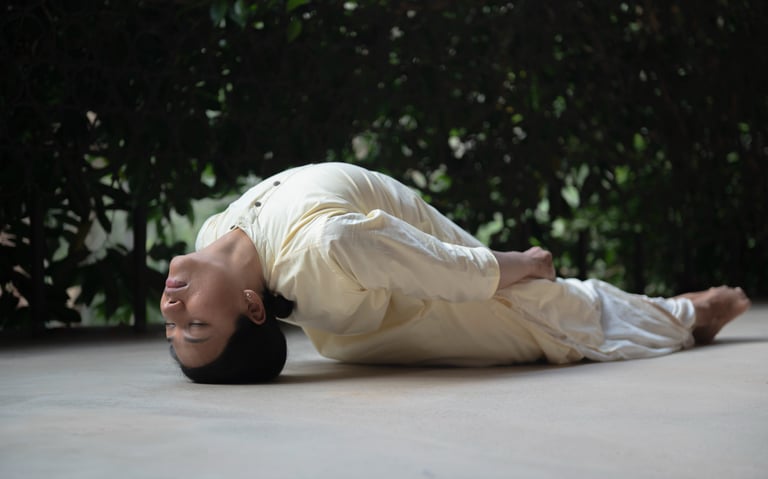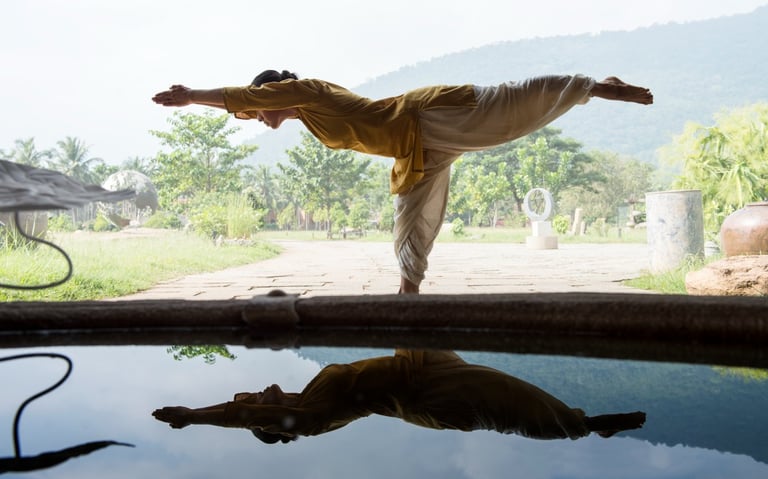Attachment and Yoga: How to Be Free Without Detaching from Life
Blog post description.
Leela hatha yoga
6/7/20254 min read


What is Attachment?
Attachment isn’t love. It’s not even deep care. Attachment is an emotional dependency—a deep-rooted identification with people, outcomes, or experiences. It’s the inner belief that we are incomplete without something or someone outside of ourselves.
In the yogic view, this is the root cause of suffering. The more you cling, the more you fear. The more you fear, the more you lose control of your own inner state.
Why Do We Get Emotionally Attached?
From a yogic perspective, emotional attachment arises when we lack clarity about who we are. We mistake ourselves for our thoughts, emotions, roles, and relationships. This creates a constant craving for stability, love, and validation from the outside world.
Our nervous system becomes wired to seek comfort in familiarity and pleasure. When those things are threatened or taken away, we experience stress, anxiety, and grief.
This is why yoga for emotional balance and detachment is not about withdrawing—it’s about deepening your self-awareness so you can be fully alive without suffering.
How Attachment Causes Internal Imbalance
Attachment doesn’t just disturb the mind—it creates a ripple effect throughout the body.
Chronic worry and dependency lead to hormonal imbalances, increased cortisol, and nervous system dysregulation.
This stress weakens your immune system, digestion, and sleep—leading to mental health issues like anxiety and depression.
Emotionally, it manifests as jealousy, fear, overthinking, and compulsive behaviors.
Spiritually, it becomes a barrier to inner stillness and clarity.
When you're attached, you’re reacting—not living. You may have all the things in place—job, partner, routine—but still feel restless or hollow.
This is what many people experience today: a life without life.
The Yogic Way: How to Overcome Attachment Without Suppressing Emotions
Yoga is not a technique to suppress emotions or escape life. Rather, it’s a powerful path to inner freedom and conscious involvement.
You don’t need to stop loving people or pursuing dreams. You just need to stop making them the source of your identity or happiness.
Through yogic practices, you develop the clarity to see things as they are, the resilience to face challenges, and the stability to remain unaffected, no matter what life brings.
This is what it truly means to overcome emotional attachment through yoga.
How Yoga Practices Designed by Sadhguru Help You Transcend Attachment
At Leela Yoga, we offer classical Hatha Yoga in Rishikesh as taught by Sadhguru. These aren’t just fitness routines—they are inner technologies that transform the very way you live and experience life.
Surya Kriya: Cultivating Clarity and Stillness
Surya Kriya is a powerful solar practice that balances your internal energies and brings immense mental clarity and emotional stability. It awakens a deeper dimension of perception where emotional dependencies begin to dissolve.
This makes Surya Kriya a highly effective form of yoga for letting go of attachment and increasing focus.
Angamardana: Building Strength and Emotional Resilience
Angamardana brings strength not just to the muscles, but to your entire system—body, mind, and energy. It builds a deep resilience that helps you face life’s ups and downs without breaking down.
If you want to cultivate emotional independence and confidence, Angamardana is one of the best yogic tools.
Yogasanas: Aligning Body, Mind, and Emotion
Yogasanas align your system with the cosmic geometry, creating harmony within. When the body is aligned, the breath becomes smooth, the mind becomes quiet, and the heart becomes open—but not vulnerable to drama.
This allows you to experience love without attachment, involvement without fear, and intensity without suffering.
Why Consistency in Yoga Practice is Key to Freedom
The power of yoga lies in regularity. When you practice daily, your inner chemistry shifts.
Emotional triggers lose their power.
Situations that once disturbed you feel neutral.
Desires become expressions, not compulsions.
This is why daily yoga for mental clarity and detachment is essential if you want to move beyond cycles of clinging, craving, and suffering.
With consistent yoga, there’s no way for entanglement to take root.
The Himalayan Yoga Retreat by Leela Yoga
If you’re seeking a sacred space to realign and reconnect, our 5-day Himalayan Yoga Retreat in Rishikesh is designed for your complete well-being.
You’ll experience:
Daily practices of Surya Kriya, Angamardana, and Yogasanas.
Guided meditations for awareness and emotional clarity.
Ayurvedic sattvic meals to balance the body and mind.
A gentle gut cleanse to support mental clarity and emotional detox.
The peaceful energy of the Himalayan foothills, which naturally supports inner stillness.
This combination of yoga, Ayurveda, and silence brings an experiential understanding of the yogic truth:
“You are not the body. You are not even the mind.”
From Attachment to Awareness: What Yoga Teaches Us
The purpose of yogic practice is not detachment—it’s transformation.
You can:
Love without fear.
Be successful without obsession.
Express emotions without being consumed by them.
This is what it means to live with conscious involvement and inner freedom.
Yoga doesn’t ask you to step back from life. It asks you to step into it more fully—without getting lost in it.
Conclusion: Choose Involvement Without Entanglement
Attachment happens when your body and mind are not in your control. Yoga brings them under your control—so you can live fully, freely, and fearlessly.
At Leela Yoga, we don’t just teach yoga. We guide you toward a life of clarity, balance, and bliss.
Explore our Himalayan Yoga Retreat and begin your journey to freedom.








Leela - Hatha Yoga & Stay
Balaknath Rd, Upper Tapovan, Rishikesh,
Near Secret Garden/ Blue Guest House,
Uttarakhand 249137, India
